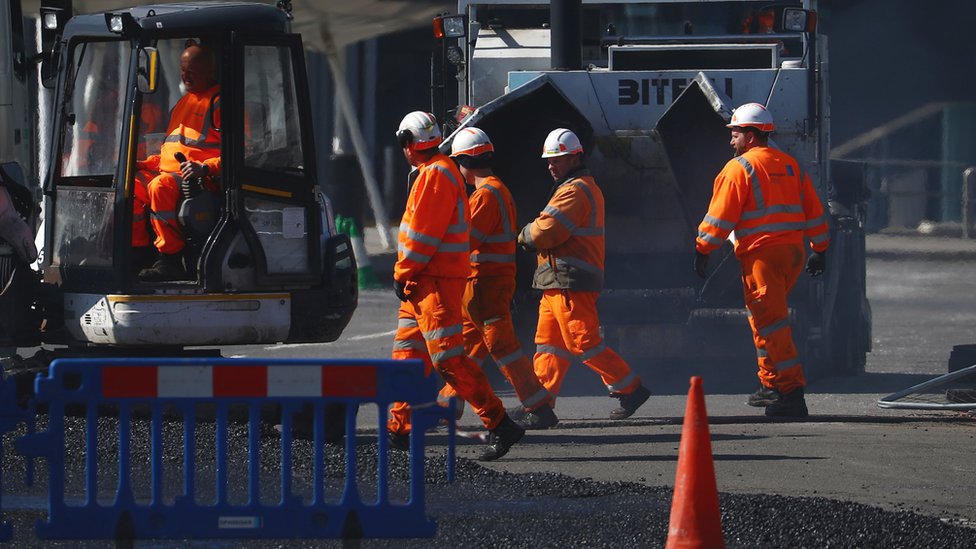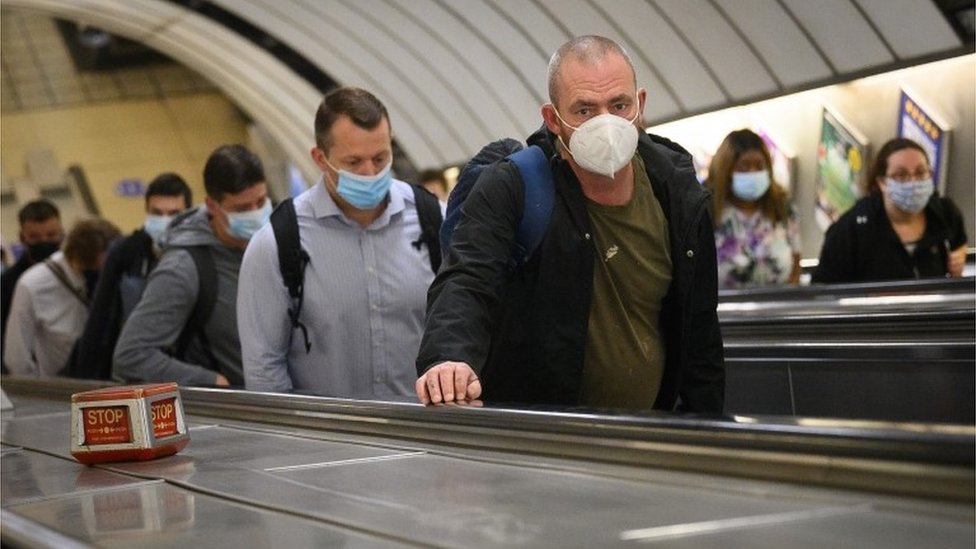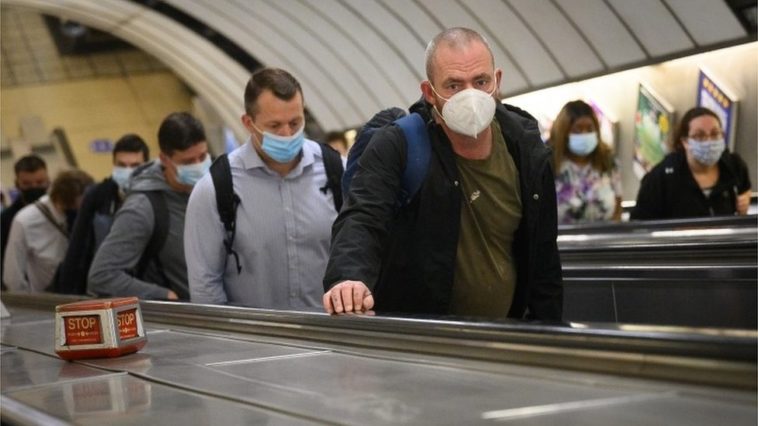Covid: Can my boss force me to go to work?

Getty Images
People in England and Scotland must now stay at home
under new national lockdowns, which will remain in place for a number of weeks.
Prime Minister Boris Johnson ordered people to stay indoors other than for limited exceptions – such as food shopping, exercise or work that cannot be done at home.
But can bosses force employees to go in?
Who’s allowed to go into work?
People across the UK who can work effectively from home should do so. They should only travel to their workplace if they cannot do their job remotely.
This includes healthcare professionals, teachers, childcare providers, transport workers, people who work in construction or manufacturing, funeral directors, and essential retail workers.
More people are allowed to go to work during this third lockdown than in the first, including:
- Elite sports people
- Film and TV crews
- Dentists
- Estate agents
- Removal firms
How must staff be kept safe?
For workplaces that remain open in England, employers must “carry out an appropriate Covid-19 risk assessment” to develop a “specific” strategy to stop the virus’s spread.

In England, the guidelines set out strict measures which employers must follow, including:
- Minimising the number of unnecessary visits to the office
- Ensuring that staff observe 2m (6ft) social distancing wherever possible
- If that is not viable, staff should observe 1m social distancing with additional precautions
- Frequent cleaning of surfaces, objects and communal areas
- Extra hand washing facilities
- Introducing one-way systems to minimise contact
- Using screens or barriers between staff
- Using back-to-back or side-to-side working (rather than face-to-face) whenever possible
- Staggering start/end times
- Collecting visitors’ contact details for NHS Test and Trace
In addition, all retail staff and customers must wear face coverings, unless they are exempt.
There is more detailed guidance for a number of different industries including construction, hospitality and manufacturing.

If employees are unhappy, and feel their employer has not addressed their concerns, they can contact their local authority or the Health and Safety Executive, which can force firms to take action.
If your job involves working in other people’s homes – for example, as a nanny, cleaner or tradesperson – you can do so, but should take as many precautions as you can.
There is similar guidance for employers across a range of sectors in Scotland,Wales and Northern Ireland.
Do those shielding have to go to work?
Under England and Scotland’s new measures, people who are clinically “extremely vulnerable” should now shield once more and will be contacted by letter.
Those who are shielding should not go into work, even if they cannot work from home.
If you can’t work from home, you can ask your boss if they will put you on furlough. If that is not an option, you might be able to claim statutory sick pay using your shielding letter as evidence you can’t go to work.
If you are extremely vulnerable, for example if you are on immunosuppressant drugs, but live with people who are not, they can continue to go into work if they can’t work at home.
There is further guidance for vulnerable employees in Wales and Northern Ireland.
What if I need to look after my children?
Schools have closed to most pupils in England, Scotland and Wales until the middle of February while Northern Ireland students will have an “extended period of remote learning”.
If employees cannot work “due to caring responsibilities resulting from coronavirus”, including needing to provide childcare, the government has confirmed that you can ask to be put on furlough.
However, employers do not have to agree to put you on furlough.
Some organisations may let employees take time off to look after their children, either as annual leave, or unpaid parental leave. You may also be able to arrange to work part time, or change your working pattern.
Can my boss force me to go to work?
The Chartered Institute for Personnel and Development, which represents HR professionals, told the BBC that there is no one-size-fits-all answer.
It will depend on a range of factors, including the individual and their circumstances, the type of work in question and the work environment.
The organisation’s head of public policy Ben Willmott said: “Employers have a duty of care to all their staff and [must] treat people reasonably and fairly, so will need to consult with individuals and be as flexible as possible when dealing with any concerns people will have over attending the workplace.”
But bosses could be breaking the law if they demand you return to your workplace after you’ve told them you’re shielding.
If you decide not to go to work, you could ask your doctor for a fit note to say you can’t work and claim sick pay from your employer, or check if you can get statutory sick pay.

- SYMPTOMS: What are they and how to guard against them?
- TESTING: How do I get a virus test?
- SUPPORT BUBBLES: What are they and who can be in yours?
- TEST AND TRACE: How does it work?

How do you travel to work safely?
The government is advising those who need to travel to work to walk or cycle if possible.
People who do use public transport are advised to follow the government’s travel safety guidelines, which include planning ahead to avoid busy times of day to allow for social distancing.

Commuters must wear a face covering (worn over both the mouth and the nose) while on trains, buses and at stations, unless they are exempt. People using taxis or private hire vehicles, including ride-hailing apps, must also wear a face covering at all times.
Travellers are also advised to wash and sanitise their hands at the beginning and end of every journey.
Those experiencing Covid symptoms, people living with somebody who is experiencing Covid symptoms and anyone who has been told to self-isolate must not travel.
Fines for breaching the rules range between £1,000 and £6,400 for repeat offenders in England.
Published at Tue, 05 Jan 2021 15:08:58 +0000






Comments
Loading…